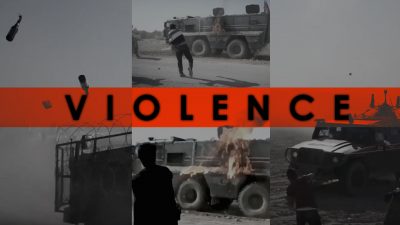Dancing on the Volcano. “We Prefer Self-delusion to the Thought of Danger”
Reality wants to be recognised and understood

All Global Research articles can be read in 51 languages by activating the Translate Website button below the author’s name.
To receive Global Research’s Daily Newsletter (selected articles), click here.
Follow us on Instagram and Twitter and subscribe to our Telegram Channel. Feel free to repost and share widely Global Research articles.
***
According to the author, a traditional quotation by the German poet Heinrich Heine from 1842 also characterises today and describes a particularly risky behaviour. The metaphor used in this quotation goes back to a saying by the French statesman Salvandy in 1830:
“Nous dansons sur un volcan” (“We dance on a volcano”) (1).
In Germany, the saying spread through the politically committed journalist, essayist and satirist Heinrich Heine. In his Paris Lutetia reports of 1842, Heine wrote: “We are dancing on a volcano here – but we are dancing. What is fermenting, boiling and brewing in the volcano is not what we want to examine today, and only how one dances on it shall be the object of our contemplation.” (2) The German feature film “Tanz auf dem Vulkan” (Dance on the Volcano), made a year before the outbreak of the Second World War in 1938, used the same metaphor (3).
We know that we live on the edge of the volcano – but we hope that it will not erupt
Striving for power in business and politics keeps driving us into catastrophes in which the wealth of our culture is squandered and the harvests of our civilisation are destroyed. Although these disastrous effects threaten our existence, we are lethargic enough not to let them shake us awake. As the thunderstorm of violence gathers over our heads, we continue to lull ourselves into safety.
It seems that we prefer the comforting self-delusion to the thought of danger. But reality wants to be recognised and understood: whoever contradicts it will either be harmed or even destroyed.
If we live in a world where war, crime and injustice are the order of the day, we are partly to blame for these conditions, because the world is the way we have set it up or – in relation to pre-existing conditions – tolerated it. No one can escape responsibility. We are always complicit, even when we are victims. We are not outraged by wars and we are not outraged by thousands of injustices even in our immediate vicinity.
In the questionable opinion that violence will spare us, we do not fight against it, but approve of it. But then, when it comes upon us, it is usually too late to contain it.
Making public spirit the guiding idea
Everywhere it comes down to public spirit, to the feeling of belonging together, of being with one another. The reduction of the lust for power and the desire for violence is not a postulate of edifying moral sermons: it is the simple necessity of communal life. The gift of evolution consists in the moral consciousness of the individual, in the insight into the responsibility of all towards all. Our task for the future is therefore above all the cultivation and strengthening of communal feelings.
Every human being is called upon to make his or her contribution to solving the pressing problems of our time. And of course we are able to do this if we realise that it depends on each and every one of us. Why not muster the courage to use our own intellect, not to suppress the current problems of humanity, but to stand up against injustice – intellectually, emotionally, politically. Overcome the inertia of the heart and act! Against all odds, muster the determination to seek the truth and thereby preserve our dignity as human beings and create a future worth living for ourselves and our children.
*
Note to readers: Please click the share buttons above or below. Follow us on Instagram and Twitter and subscribe to our Telegram Channel. Feel free to repost and share widely Global Research articles.
Dr. Rudolf Lothar Hänsel is a teacher (retired headmaster), doctor of education (Dr. paed.) and graduate psychologist (Dipl.-Psych.). He taught and trained professionals for many decades. As a retiree, he worked as a psychotherapist in his own practice. In his books and educational-psychological articles, he calls for a conscious ethical-moral values education as well as an education for public spirit and peace. His motto in life (after Albert Camus): Give when you can. And not to hate, if that is possible. He is a regular contributor to Global Research.
Notes
(1) https://de.wikipedia.org/wiki/Tanz_auf_dem_Vulkan
(2) http://heinrich-heine-denkmal.de/heine-texte/lutetia42.shtml
(3) https://de.wikipedia.org/wiki/Tanz_auf_dem_Vulkan

